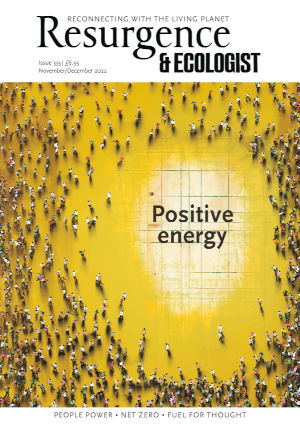Released in the midst of an international energy crisis, The Oil Machine historicises British oil and introduces the activists working to end it.
Once, the future was bright. Workers set themselves complex challenges. They believed that “everything you did would benefit the country, ... that we were the pioneers … breaking new ground.” They were building the oil rigs that began drilling the North Sea in the 1970s.
The Oil Machine tells the story of this early development movingly, showing how oil abruptly took over our lives. Alongside this, interviews with trade unionists, scientists, lawyers, historians and activists are woven together, giving an overview of the people working towards ending the fossil fuel industry. The criticism is clear without treating industry spokespeople unfairly.
This detailed portrait shows North Sea industry as a complex part of our economy, harming the people it’s purported to benefit. The wide-ranging expertise and clarity of the interviewees will certainly provide useful insights for environmentalists. What’s more, the fair but critical economic history may well prove mind-changing to unpersuaded viewers. The evidence built up against fossil fuels is incontestable.
However, this format means that it feels, at times, like the speakers are isolated from one another: there’s exposition, but little clashing. Amidst the mounting evidence against the industry, oil advocates can make claims without having to enter serious political dialogue.
In one particularly frustrating cut, Deirdre Michie, CEO of Offshore Energies UK, claims, “The industry is liable for all the costs associated with decommissioning.” Immediately after this, lawyer Tessa Khan explains how companies can “claim costs that they incur from decommissioning oil and gas assets… The UK taxpayer pays about 50% of the costs of decommissioning.” One of the two must be wrong, but in this format it’s easily missed. A forensic exposure of this contradiction would be fascinating.
Amongst the commentators, activist Mikaela Loach and investment officer Steve Waygood are particularly valuable. Waygood describes the fossil fuel sector as an increasingly poor investment prospect, compared with renewables. Loach gives incisive comments as a medical student activist; her campaigning would make a great subject for further documentary work.
The film is engaging and well researched. It captures the monumentality of the oil project, and the historical treatment reminds us how new our dependence on oil is. This points us ironically towards the kinds of heroic, world-changing narrative that need to be told about renewable energy today.







